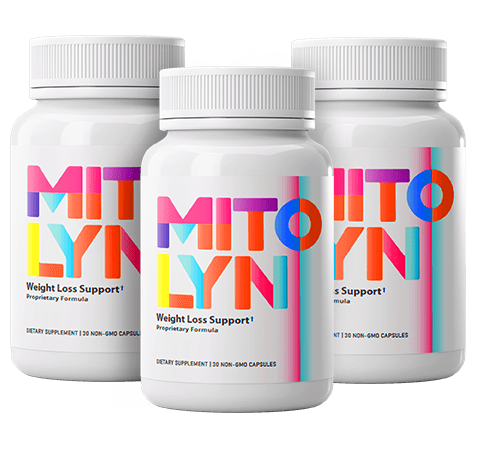10 Essential Tips for Optimal Health: A Guide to Thriving with a Balanced Lifestyle
When it comes to achieving optimal health, many people focus solely on diet and exercise. While these are important factors, there are many other aspects of a balanced lifestyle that can contribute to overall well-being. In this article, we will explore 10 essential tips for optimal health that go beyond just what you eat and how much you move. By incorporating these tips into your daily routine, you can improve your physical, mental, and emotional health, and thrive in all areas of your life.
1. Prioritize Sleep
One of the most overlooked aspects of optimal health is sleep. Getting an adequate amount of quality sleep is essential for overall well-being. Lack of sleep can lead to a variety of health issues, including weight gain, decreased immune function, and cognitive impairment. Aim for 7-9 hours of sleep each night, and establish a consistent bedtime routine to help improve the quality of your sleep.
2. Stay Hydrated
Drinking enough water is crucial for maintaining optimal health. Water helps to regulate body temperature, aid in digestion, and flush out toxins. Aim to drink at least 8 glasses of water per day, and more if you are physically active or live in a hot climate. Avoid sugary drinks and excessive caffeine, as these can dehydrate the body and lead to other health issues.
3. Eat a Balanced Diet
A balanced diet is essential for optimal health. Make sure to include a variety of fruits, vegetables, whole grains, lean proteins, and healthy fats in your meals. Avoid processed foods, sugary snacks, and excessive amounts of caffeine and alcohol. Eating a well-rounded diet will provide your body with the nutrients it needs to function properly and support your overall health.
4. Get Moving
Regular physical activity is key to optimal health. Aim to incorporate at least 30 minutes of moderate exercise into your daily routine, such as walking, jogging, cycling, or yoga. Exercise not only helps to improve physical health, but also boosts mood, reduces stress, and enhances cognitive function. Find activities that you enjoy and make them a regular part of your routine.
5. Manage Stress
Chronic stress can have a negative impact on your health. It can lead to a variety of physical and mental health issues, including high blood pressure, anxiety, depression, and digestive problems. Find healthy ways to manage stress, such as meditation, deep breathing exercises, yoga, or spending time in nature. Prioritize self-care and make time for activities that help you relax and unwind.
6. Connect with Others
Human connection is essential for optimal health. Building and maintaining relationships with friends, family, and community members can provide emotional support, reduce feelings of loneliness, and improve overall well-being. Make an effort to connect with others regularly, whether it’s through phone calls, video chats, or in-person gatherings. Social interaction is vital for maintaining mental and emotional health.
7. Practice Mindfulness
Mindfulness is the practice of being present in the moment and fully engaging with your thoughts, feelings, and surroundings. It can help to reduce stress, improve focus and concentration, and enhance overall well-being. Incorporate mindfulness practices into your daily routine, such as meditation, deep breathing exercises, or mindful eating. Being mindful can help you to better cope with stress and navigate life’s challenges with greater ease.
8. Prioritize Self-Care
Self-care is essential for optimal health. Taking time to care for yourself and prioritize your own needs is not selfish, but necessary for maintaining well-being. Make time for activities that bring you joy and relaxation, such as reading, taking a bath, going for a walk, or practicing a hobby. Listen to your body and mind, and give yourself the care and attention you deserve.
9. Practice Gratitude
Cultivating an attitude of gratitude can have a positive impact on your health and well-being. Taking time to appreciate the good things in your life can help to shift your perspective and improve your mood. Start a gratitude journal, where you write down things you are thankful for each day. Practice expressing gratitude to others, and focus on the positive aspects of your life. Gratitude can help to improve mental and emotional health, and enhance overall happiness.
10. Seek Professional Help When Needed
If you are struggling with your physical, mental, or emotional health, don’t hesitate to seek professional help. Talk to a doctor, therapist, or other healthcare provider if you are experiencing persistent symptoms or issues that are impacting your well-being. Don’t be afraid to ask for help, as getting support can make a significant difference in your overall health and quality of life.
Conclusion
Optimal health is about more than just diet and exercise. It’s about taking a holistic approach to well-being and incorporating a variety of healthy habits into your daily routine. By prioritizing sleep, staying hydrated, eating a balanced diet, getting moving, managing stress, connecting with others, practicing mindfulness, prioritizing self-care, practicing gratitude, and seeking professional help when needed, you can improve your physical, mental, and emotional health, and thrive in all areas of your life. Remember that small changes can lead to big results, so start incorporating these tips into your daily routine today and see the positive impact they can have on your overall health and well-being.










